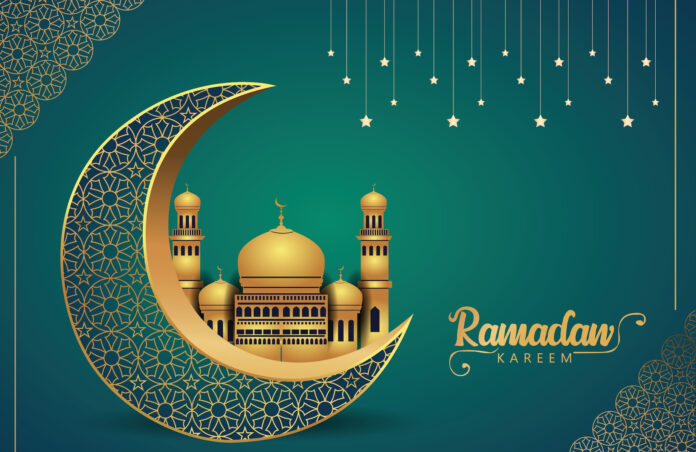Ramadan: A time of reflection, renewal, divine reward
As the blessed month of Ramadan approaches, Muslims around the world prepare for a time of fasting, prayer, and spiritual reflection.
Fasting during Ramadan is one of the Five Pillars of Islam, a central tenet of the faith that carries with it profound benefits, both spiritual and physical.
Beyond abstaining from food and drink, fasting during Ramadan offers Muslims an opportunity to strengthen their connection with Allah (SWT), purify their hearts, and seek forgiveness for past mistakes.
The Blessings of Ramadan in the Qur’an
The Qur’an itself speaks powerfully about the importance and benefits of fasting during Ramadan. Allah (SWT) says in Surah Al-Baqarah (2:183):
“O you who have believed, decreed upon you is fasting as it was decreed upon those before you that you may become righteous.”
This verse highlights the central purpose of fasting: to attain taqwa, or God-consciousness. By abstaining from worldly pleasures and focusing on spiritual growth, Muslims are encouraged to renew their sense of discipline and reverence for Allah (SWT).
Ramadan is a time to break free from the distractions of daily life and reconnect with the essence of faith.
Additionally, fasting during Ramadan provides an opportunity for reflection and self-discipline. Allah (SWT) reminds Muslims in Surah Al-Baqarah (2:184):
“Fasting is prescribed for you as it was prescribed for those before you, that you may become conscious of Allah (SWT).”
This verse reinforces that fasting is not merely a physical act but a spiritual one. It aims to elevate the soul, purify the heart, and bring a person closer to Allah (SWT) through acts of worship, self-restraint, and charity.
READ ALSO: Kindness in Islam: A path to peace, compassion, spiritual fulfillment
The Rewards of Fasting in Ramadan
The rewards for fasting during Ramadan are immense and manifold. In several Hadiths, the Prophet Muhammad (peace be upon him) emphasized the unparalleled rewards that await those who observe the fast with sincerity and devotion. One such Hadith from Sahih Bukhari states:
“Whoever fasts during Ramadan with faith and seeking reward, his past sins will be forgiven.” (Sahih Bukhari)
This powerful promise from the Prophet highlights the extraordinary mercy of Allah during this sacred month. It’s a time when Muslims can erase past transgressions through sincere repentance and devotion.
In addition to forgiveness, Ramadan is a time when the gates of Paradise are wide open, and the gates of Hell are closed. The Prophet Muhammad (peace be upon him) said in a Hadith:
“When Ramadan begins, the gates of Heaven are opened, and the gates of Hell are closed, and the devils are chained.” (Sahih Bukhari)
This illustrates the unique spiritual environment of Ramadan. With the devils chained, the distractions and temptations of evil are minimized, making it easier for believers to focus on worship and good deeds.
Ramadan and the Night of Decree (Laylat al-Qadr)
Among the most significant rewards of Ramadan is the Night of Decree, known as Laylat al-Qadr. The Qur’an states in Surah Al-Qadr (97:3):
“The Night of Decree is better than a thousand months.”
This night, which falls within the last ten days of Ramadan, is a time when the Qur’an was revealed, and the blessings and mercy of Allah (SWT) are abundant. Worship on this night holds more value than the worship of a thousand months, making it a deeply coveted opportunity for forgiveness, prayer, and supplication.
Physical and Spiritual Benefits
While the primary purpose of fasting is spiritual, there are physical benefits as well. Fasting helps cleanse the body, improve mental clarity, and reset unhealthy habits. The practice of abstaining from food and drink reminds Muslims of the importance of self-control and gratitude for the blessings they often take for granted.
Moreover, fasting fosters empathy for those who are less fortunate. The experience of hunger and thirst during Ramadan instills a deeper sense of compassion and generosity, encouraging Muslims to give more to charity and support those in need.
In conclusion, as Ramadan approaches, Muslims eagerly anticipate the opportunity to grow spiritually, seek forgiveness, and earn immense rewards. Through fasting, prayer, reflection, and good deeds, Ramadan provides a unique chance to draw nearer to Allah.
The Qur’an reminds believers of the transformative power of this blessed month, with its promise of mercy, forgiveness, and divine blessings. May this Ramadan be a time of renewal, both spiritually and physically, for all who observe it.
As Allah (SWT) says in Surah Al-Baqarah (2:185):
“Ramadan is the month in which was revealed the Qur’an, a guidance for the people and clear proofs of guidance and criterion.”
May this sacred month bring peace, blessings, and guidance to all.
Follow the Neptune Prime channel on WhatsApp:
Do you have breaking news, interview request, opinion, suggestion, or want your event covered? Email us at neptuneprime2233@gmail.com





